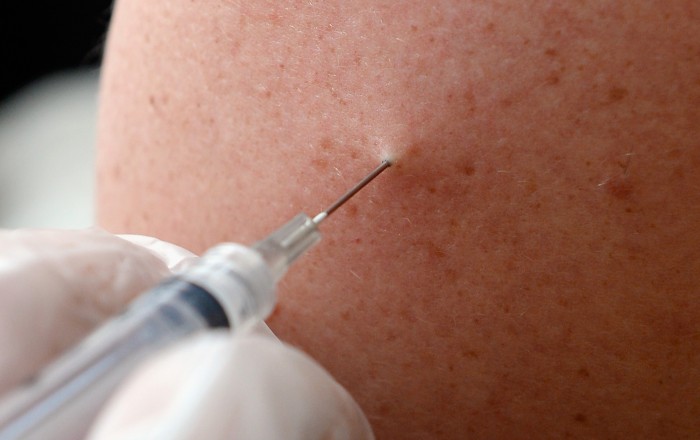It’s flu season—and not getting your shot could prove costly.
Last year, influenza dinged the U.S. economy for $5.5 billion in lost productivity, hospital visits, and other costs, with the vast majority of that coming from people who didn’t roll their sleeves up for a jab.
In all, vaccine-preventable diseases cost the country about $9 billion in 2015, with 80 percent of that coming from people who failed to get vaccinated, according to a new study in the journal Health Affairs. While close to 17 million influenza cases accounted for the lion’s share of the losses, pneumonia, meningitis, hepatitis B, and HPV infection all had significant parts to play.

From a public health standpoint, this is low-hanging fruit—or should be. Last year, only about 42 percent of U.S. adults over age 18 got a flu vaccine. A separate study recently found that millennials often cited the cost of a flu shot as the reason for not getting vaccinated. But this doesn’t make much sense: buying flu medication once you get sick costs about the same as a vaccine, and missing work is very expensive for anyone who gets paid by the hour. Millennials were also skeptical that the shots would work (they do), as were their older counterparts—49 percent of adults aged 35-44 said they didn’t plan on getting the vaccine.
“Vaccines are one of the safest and most cost-effective health interventions, with numerous social and economic benefits,” the researchers write. Despite that, they say, “adults in the United States are not receiving vaccinations at recommended levels.”
People have never been particularly good at making decisions in their own economic self-interest, but this one seems pretty simple: get your shot, stay healthy.
(Read more: Health Affairs, Bloomberg, “Cows Engineered with Human Genes Could Stop Our Next Disease Outbreak,” “Freeze-Dried Molecules Can Be Used to Whip Up Medicines Anywhere”)
Keep Reading
Most Popular
Large language models can do jaw-dropping things. But nobody knows exactly why.
And that's a problem. Figuring it out is one of the biggest scientific puzzles of our time and a crucial step towards controlling more powerful future models.
How scientists traced a mysterious covid case back to six toilets
When wastewater surveillance turns into a hunt for a single infected individual, the ethics get tricky.
The problem with plug-in hybrids? Their drivers.
Plug-in hybrids are often sold as a transition to EVs, but new data from Europe shows we’re still underestimating the emissions they produce.
Google DeepMind’s new generative model makes Super Mario–like games from scratch
Genie learns how to control games by watching hours and hours of video. It could help train next-gen robots too.
Stay connected
Get the latest updates from
MIT Technology Review
Discover special offers, top stories, upcoming events, and more.